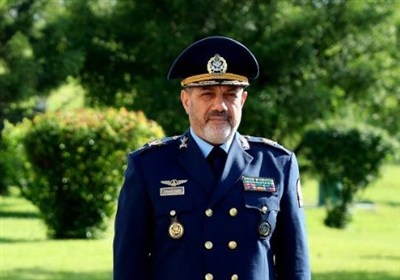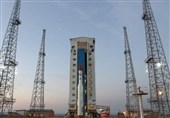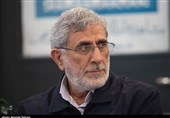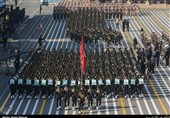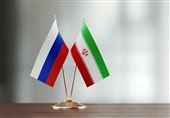Zarif Terms Israel “Biggest Threat” to World
TEHRAN (Tasnim) – Iranian Foreign Minister Mohammad Javad Zarif firmly denied rumors that an Israeli representative had attended the recent nuclear negotiations between Tehran and the major world powers in Geneva, and described Israel as a major threat to the world.
“Today, the biggest threat to the international community is Israel, and we never stay in a room where this regime’s (the Zionist regime of Israel’s) representative is present,” Zarif told reporters in the Iranian city of Qom on Friday.
This comes as Iran and the G5+1 (Russia, Britain, the US, China, France and Germany) signed a six-month deal on Tehran’s nuclear program after three rounds of intensive talks in the Swiss city of Geneva on November 24. The agreement, which appeared in doubt until the last moment, caps a decade of diplomacy between Iran and the leading western powers.
Israel, Iran's arch-enemy and a US ally, has denounced the agreement as a "historic mistake."
The Iranian minister also hailed the nuclear deal as an opportunity for the western sides to prove their goodwill to Iran, and said, “Our nation strongly distrust the West, and now the western countries have been given an opportunity to dispel that (mistrust).”
In relevant comments on Sunday, November 24, Zarif called on all the negotiating parties in nuclear talks with Tehran to seize the opportunity brought by the landmark deal signed in Geneva, and added the US has to restore the confidence of the Iranian nation.
“I think the West, particularly the US, needs to do a lot to at least partially restore confidence, the confidence of the Iranian people,” he said in an interview with NBC News at the time.
The deal is intended to allow time to negotiate a comprehensive agreement on the nuclear program.
In late September, Zarif said Israel which has an arsenal of 200 nuclear warheads is the source of insecurity in the Middle East.
"Israel has 200 nuclear warheads. Israel is the source of insecurity in our region. Israel is the source of aggression and violation of human rights of the Palestinian people. It should not have the audacity to continue to lie to the American people and to the world and mislead everybody," Zarif said.
And President Hassan Rouhani has said the deal signed between Iran and world powers in Geneva caused the isolation of the Islamic Republic's enemies.
“Many were trying to isolate Iran, but who is isolated today? Our enemies are in fact isolated,” said the Iranian president on Tuesday.
As part of the agreement, Iran has agreed to allow the International Atomic Energy Agency (IAEA) to inspect daily its facilities in Natanz and Fordow. For the first time, the country would also allow inspection and monitoring of its centrifuge manufacturing facilities and its uranium mines and mills. It will also stop enriching uranium beyond 5% and neutralize its stockpile of uranium enriched beyond this point. Tehran has also agreed not to increase the number of its centrifuges during the period.
In return for these concessions, the United States and the European Union have agreed to impose no new sanctions on Iran and to suspend some existing ones on its trade in petrochemicals, automobiles, gold and precious metals, civil aviation parts, and food and medicine.
Some of Iran's frozen assets will be transferred in installments, while there will be fewer restrictions on the sale of crude oil in this period and the revenues from the sale of oil will not be subject to the sanctions regime.
But perhaps the most salient point in the deal is that the G5+1 are allowing Iran to continue enriching uranium below five percent. Iran maintains that this is no concession but is, rather, recognition of the country’s inalienable right under the NPT to enrich uranium on its own soil.


